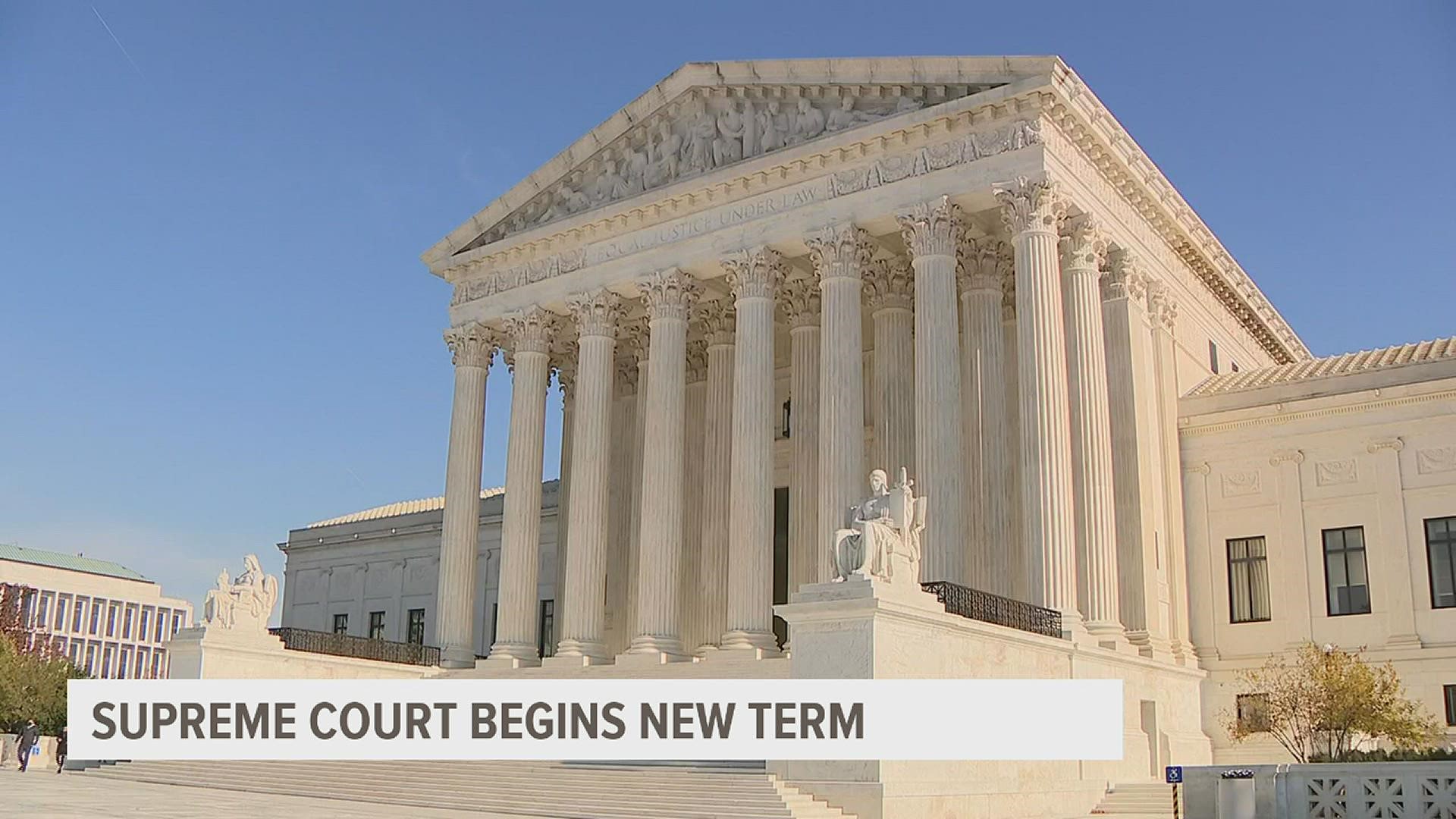HARRISBURG, Pa. — The Supreme Court’s last term came to a turbulent end in June when Justices voted to overturn Roe v. Wade.
The barricades surrounding the court have since been removed, but the damage has been done to the Court’s reputation. The percentage of Americans who said they have “a great deal” or “a fair amount” of trust in the Supreme Court has fallen to a historical low of 47 percent, according to a Gallup poll.
The Justices have taken notice, as evidenced by remarks Chief Justice John Roberts made defending the Court’s legitimacy at a conference in Colorado in September.
"Decisions have always been subject to intense criticism, and that is entirely appropriate,” he said. “But lately, the criticism is phrased in terms of because of these opinions, it calls into question the legitimacy of the court."
That, he said, was a mistake, because the Supreme Court is supposed to be insulated from public opinion; that’s the reason Justices are appointed for life.
“It can be doing its job and sometimes it’s required to do its job precisely when the public thinks it should be doing something different,” said Michael Dimino, a law professor at Widener University Commonwealth Law School.
The upcoming docket promises more controversy, as the Court plans to take on hot-button issues like the Voting Rights Act and affirmative action in college admissions.
Arguments began on Tuesday over the Clean Water Act in Sackett v. EPA. The case could limit the government’s ability to regulate wetlands. Legal experts said if the Court rules against the EPA, the impact on water systems across the country could be enormous.
“A narrow interpretation of what the term ‘waters of the United States’ means would mean that lots of chemical discharges into waterways also wouldn’t be covered and could proceed without a permit either from the EPA or the state,” said Robert Glicksman, professor of environmental law at George Washington University Law School.
The Court has already made some summary rulings, including that a $3.1 billion defamation case against “My Pillow” founder Mike Lindell can proceed. Dominion Voting Systems said Lindell promoted false claims that their voting machines rigged the 2020 presidential election.

